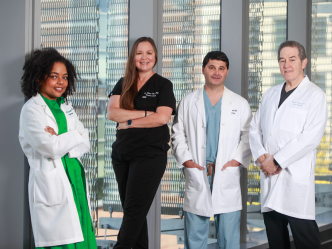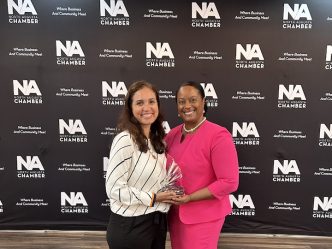Front line health care and the arts might not seem like they have a lot in common, but the latest LASER Talk aims to bring the two together to spark creative connections.
The event will run from 6 — 8 p.m. on Tuesday, Feb. 20, in EC-1222 of the Health Sciences Building.
Founded in 2008, LASER (Leonardo Art Science Evening Rendezvous) Talks are a way for communities and universities to bring innovators and leaders in the arts and sciences together for the benefit of all parties. With multiple annual events spanning the globe, LASER Talks are a new and exciting standard for fostering interdisciplinary work in the cities and universities at the forefront of change.
Scott Thorp, the university’s chair of the Department of Art & Design and associate vice president of Interdisciplinary Research, serves as Augusta University’s LASER chair.
“The goal is to get a conversation going so you draw an understanding that these things are very similar and they’re related, and the processes behind being and artist and being a scientist overlap,” Thorp said. “What we’ve found is, even if our speakers don’t seem to coincide when you walk in, people immediately draw connections between what’s happening.”
This year’s theme is Innovation. Hosted by the College of Nursing, the LASER Talks will be a collaborative presentation of the College of Nursing and the Department of Art & Design.
“The whole idea is that nursing is all about user-innovation,” Thorp said. “They get put into these situations because they’re on the front lines and people’s lives are at risk. They’re compassionate and they want to help people, and they find ways to.”
The speakers for this year are Elizabeth G. NeSmith, chair and associate professor in the Department of Physiological and Technological Nursing; Jennifer Onofrio, professor and assistant chair in the Department of Art & Design and Erin Broxton, an instructor in the Department of Biobehavioral Nursing.
While covering three vastly different subjects ranging from sculpture to eliminating health disparities in acute outcome of life-threatening injuries, all three speakers are moving towards discovery.
“What they’re doing is very similar and how they’re helping people is very similar,” Thorp said. “Artistic kind of investigation is the same kind of investigation that people in the sciences go through because it’s inquiry that leads to discovery – it just looks different.”
One of the desired outcomes of the LASER Talks is to not only bring in community, students and faculty, but to inspire them and push them towards interdisciplinary collaboration.
For more information about Leonardo/ISAST, visit the official Leonardo website. For more information about LASER Talks held at Augusta University, contact Scott Thorp.
 Augusta University
Augusta University




